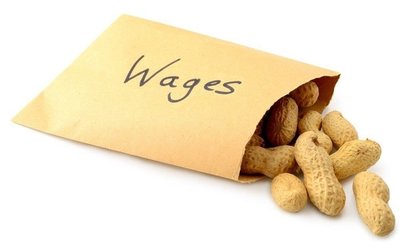|
TIM SARDER Vol 11, Issue 1 After a lengthy four-yearly review process, the Fair Work Commission handed down on February 23 the decision that Sunday penalty rates in the hospitality and retail industries would be reduced to varying degrees. This decision has implications even for workers who don’t work Sundays – many businesses have negotiated agreements where penalty rates were forfeited in exchange for a higher base rate; new, renegotiated agreements may now have a lower ordinary rate since there is less of a penalty rate to compensate against. You may be in favour of, against, or apathetic to this decision. There are an abundance of news articles which you can look at for yourself to assess your own view. But regardless of our opinions, we should consider the likely effects at our law school and for fellow students. During my first year at MLS, I worked as a waiter at Pancake Parlour. That company was on an almost decade-old WorkChoices-era enterprise agreement under which penalty rates were not being paid out to employees. I made a successful application to Fair Work to have that agreement revoked in favour of the Award which did require Saturday and Sunday rates. Over 750 employees across the franchise benefited from those new rates. For me personally, it alleviated some of the anxiety about being able to get by while studying – I became dependent on those weekend rates to get by so I didn’t have to work so many hours at work that I couldn’t keep up with my weekly readings. I’ve since moved on from that job, but the employees there are now going to have a reduced penalty rate as a result of the Fair Work decision. We know that university students are one of the key demographics for work in hospitality and retail. I suspect that while many (but not all) of our later year peers have moved on from that kind of work to more legally-related jobs, a large number of earlier-year students, especially first-years, may be working in these kinds of fields at the onset of their degree. I was aware of many people in first year who were struggling with their work/uni/life balance, and you may even know students who have dropped out of or suspended their degrees for reasons involving those issues. When wages go down, students have to work more, and that affects well being and ability to study. We should show compassion and empathy for our affected fellow students, whatever our views. All of us bear pride for the fact that we are studying our law degrees at a premier institution – and I’d like to think it goes beyond feeling smart, elitist or like we are mimicking the lives of characters in our favourite TV shows. I think it also comes down to being aware that we will become integral to the safekeeping and participating in the rule of law and in a legal tradition which touches the lives of all citizens. It only fitting that such an important profession be accessible to those from all walks of life, to avoid the dangers of bias and being out of touch. The entertaining and thoughtful Harvard professor Michael J Sandel once said of democracy that it requires ‘citizens share a common life. What matters is that people of different backgrounds and social positions encounter one another, and bump up against one another, in the course of ordinary life’. I feel that this is true of the law as well. And whatever our views on the political or economic merit of penalty rates, something is lost from the law itself, if students who rely on weekend work to live are increasingly priced out of being able to attend its schools. Tim Sarder is a third-year JD student and the Managing Editor of De Minimis. This article was written in his personal capacity. The rest of this issue:
More from this author:
Comments are closed.
|
Archives
October 2022
|



